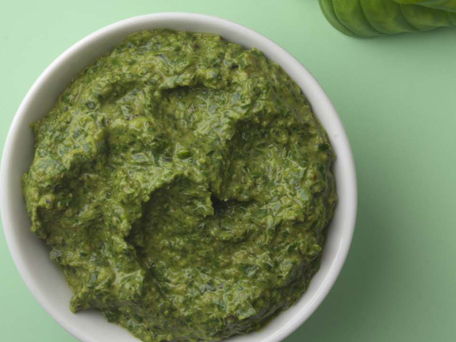On July 7, 1997, a company physician reported to the Alexandria Department of Health (ADOH) that most of the employees who attended a  corporate luncheon on June 26 at the company’s branch in Fairfax, Virginia, had developed gastrointestinal illness (Centres for Disease Control, 1997). On July 11, the health department was notified that a stool specimen from one of the employees who attended the luncheon was positive for Cyclospora oocysts. Many others tested positive. It was subsequently revealed in a July 19, 1997, Washington Post story citing local health department officials that basil and pesto from four Sutton Place Gourmet stores around Washington D.C. was the source of cyclospora for 126 people who attended at least 19 separate events where Sutton Place basil products were served, from small dinner parties and baby showers to corporate gatherings (Masters, 1997a). Of the 126, 30 members of the National Symphony Orchestra became sick after they ate box lunches provided by Sutton Place at Wolf Trap Farm Park.
corporate luncheon on June 26 at the company’s branch in Fairfax, Virginia, had developed gastrointestinal illness (Centres for Disease Control, 1997). On July 11, the health department was notified that a stool specimen from one of the employees who attended the luncheon was positive for Cyclospora oocysts. Many others tested positive. It was subsequently revealed in a July 19, 1997, Washington Post story citing local health department officials that basil and pesto from four Sutton Place Gourmet stores around Washington D.C. was the source of cyclospora for 126 people who attended at least 19 separate events where Sutton Place basil products were served, from small dinner parties and baby showers to corporate gatherings (Masters, 1997a). Of the 126, 30 members of the National Symphony Orchestra became sick after they ate box lunches provided by Sutton Place at Wolf Trap Farm Park.
In May 2001, 17 people in British Columbia (that’s in Canada) were sickened with cyclospora associated with basil from Thailand. In 2005, 300 people in Florida were sickened with cyclospora from fresh basil.
My aunt was part of that outbreak.
So when Lambton Community Health Services says it has closed its investigation of last month’s cyclospora outbreak in Sarnia, Ontario (also in Canada) that sickened more than 200 people and the suspect food was a  cool pesto crunch (it was a chef showoff fundraiser), but can’t identify the ingredient, I’m leaning towards the basil.
cool pesto crunch (it was a chef showoff fundraiser), but can’t identify the ingredient, I’m leaning towards the basil.
Dudley Do-Right The Canadian Food Inspection Agency continues to investigate.
